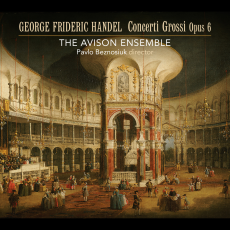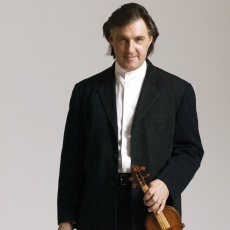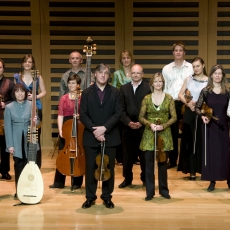The Avsion Ensemble - Handel: Concerti Grossi Opus 6 - Audiophilia
I recall, many years ago, reading a comment by an 18th Century writer (Charles Burney, perhaps?) which extensive Googling has failed to uncover, so I'll have to paraphrase; the gist of it was that if all the music in the world except the "Great Twelve" were lost, then the loss could be borne - but the tragedy of losing the Great Twelve alone would be unimaginable. Such was the esteem in which Handel's contemporaries held his Opus 6 Concerti Grossi ("Grand Concertos"), composed during a single month in 1739. Seen as both a direct tribute to Corelli's earlier Opus 6 set - modelling their then old-fashioned multi-movement structure, scoring for strings only and even using the same opus number - and an attempt to emulate their commercial success with the English public, Handel has unquestionably left us with one of the crowning jewels of the Baroque. I was fortunate that two new recordings came my way within weeks of each other.
The Australian Brandenburg Orchestra's recording is unusual in placing the concerti out of their numbered sequence; an artistically valid approach, given that they were never intended to be performed in that way, which has had the fortuitous (and possibly unique) outcome of allowing the work to be fitted onto two discs instead of the usual three. This also illustrates how performance practice has changed; a 20-year old recording I own (by an obscure East European band) runs some 25 minutes longer! Timings are not universally quick, though, and there is no impression of undue haste. Indeed, more often it is the (UK-based) Avison Ensemble's recording that gives the greater impression of pace and pent-up energy. I feel there is a weight of expectation on any English artist recording Handel - that the music be imbued with an overriding sense of grandeur and nobility - and the ABO clearly feel the greater freedom to take a less literal approach to the written score, including improvising their own cadenzas. What I found most fascinating, then, was the way the Avisons manage to make the music simultaneously noble and imposing, yet also achingly beautiful and pulsating with energy and life. The precision of their ensemble playing is breathtaking, their interpretations almost impossibly stylish. The ABO's rendition, as fine as it is, cannot compete with the turbocharged intensity of the Avisons' playing, still less with the fabulous recorded sound of Linn's hybrid SACDs. The quad-width wraparound packaging that Linn use can be a bit of a handful, though its rendering of details from a London-period Canaletto is extremely classy. The ‘unique' aesthetic of the Australian recording's artwork I shall allow to pass without comment!
The Avison Ensemble have caused me to hear these familiar works afresh. I had not realised before the extent to which, by incorporating so many influences old and new, Handel created a set of concertos that serve as the ultimate almanac of a century's musical achievement, more effectively than any other work I know. Rarely have I felt so enthusiastic about a new recording - if you buy only one all year, make it this on.


